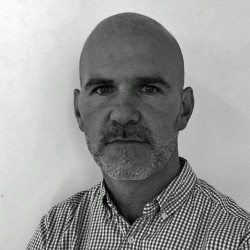Brian Dow talks workplace mental health

In every sector, employers need to take positive steps to help support employee mental health.
Brian Dow talks workplace mental health
Chief Executive, Mental Health UK & Deputy Chief Executive, Rethink Mental Illness has teamed up with This Can Happen to bring workplace mental health into the spotlight. Brian Dow spoke to us about the ever-evolving sphere of mental health.
Q. How widespread are mental health challenges in workplaces across the UK?
A. We all have mental health, just as we have physical health, so it’s fair to say that every workplace could experience mental health challenges. It’s estimated that at any one time, 1 in 6 people will be experiencing some of the symptoms of a mental health problem, such as sleep problems, stress or fatigue. A further 1 in 6 will be experiencing a ‘diagnosable’ mental health problem, the most common being depression or anxiety. But this could be an underestimation – in reality, many people might not talk about it enough for the statistics to be accurate.
In every sector, employers need to take positive steps to help support employee mental health. It’s our duty as employers to create an environment in which a mental health problem will be met openly, and appropriate adjustments made, just as you would expect with a physical illness.
A report in 2017 about the cost of poor mental health at work showed that the total cost to the UK economy is between £33-£42 billion. This equates to £1,205-£1,560 per employee per year, whether they are unwell or not. I think these figures really show the impact of mental health on business. It should make bosses sit up and listen.
Q. What kind of issues are creating challenges for people at work?
A. Many people feel worried about speaking out about their mental health. We often hear from people who say that they would feel more comfortable saying they’re off sick than saying they’re experiencing mental health problems. There’s the fear that your employer will treat you differently, or that you’ll be met with stigma. That fear comes from not having an open culture in place.
There are so many reasons why employees could develop mental health problems at work, but away from the workplace there’s also an expectation to juggle work with relationships, family, money, and whatever life throws at us. It’s a lot for anyone to handle.
Q. How have you championed change across corporate Britain in your role as Chief Executive of Mental Health UK?
A. At Mental Health UK we’re proud to offer incredible training courses to businesses, as well as consultancy to help them see where they can make changes to better support their employees’ mental health.
Through our corporate partnerships we’ve been able to shift the culture of their workplaces to open the discussion about mental health and make it a better place for people to be. An example I’m most proud of is our work with Lloyd's Banking Group. We’re now in our third year of partnership, and to date over 33,000 colleagues have taken part in e-learning modules about mental health. We’re also training over 2,500 colleagues to become Mental Health Advocates by 2020.
Q. Mental Health UK is a coalition of four charities across the UK. Could you tell us about these charities and how they came together?
A. Once upon a time we were all one charity, The National Schizophrenia Fellowship. Eventually we split off into four charities across the four nations of the UK; Rethink Mental Illness in England, Hafal in Wales, Support in Mind Scotland, and MindWise in Northern Ireland. In 2016 we decided to work together again as Mental Health UK. Each charity is an expert in their own nation, but by working together as Mental Health UK we are an even stronger team and can support even more people experiencing mental health problems with a UK-wide presence.
Q. Do you perceive that mental health in the workplace has become a more prominent issue in recent times?
A. The issue has always been there, but as mental health is becoming more normal to talk about in our daily lives it naturally raises the issue of mental health in the workplace. We simply must make adjustments for people who are experiencing mental health problems in the same way we would for someone with a physical illness or impairment.
Q. Are we getting closer to resolving workplace mental health issues in the UK or do we still have a long way to go?
A. We’re making headway, but there’s still a long way to go. There are a few simple things all companies could do to help their employees, such as:
- Offer employees information about stress management techniques, for example making sure they take their lunch break.
- Ensure managers are aware of employees who have been off work due to mental health problems and make adjustments for them.
- Make individual and organisational-level interventions: Make mental health an open conversation at work so that everyone feels more confident discussing the subject.
Q. Why are you a partner of This Can Happen?
A. We’re really be proud to be partnering with This Can Happen again in 2019. It’s an exciting opportunity for us to talk with both large and small organisations about how they can better understand and support mental health in the workplace.
What’s unique about the event is that it’s not all talk; This Can Happen exists to give immediate and practical solutions to help attendees at work. The agenda covers a range of topics - from life transitions and work, grief, and internal comms - which are relevant to all employers. Everyone can learn something from the event and translate it into positive action in their workplace.







